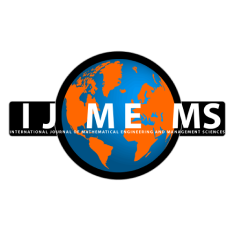Guixiang Lyu
Department of Electrical and Computer Engineering, University of Massachusetts, Dartmouth, MA, USA.
Liudong Xing
Department of Electrical and Computer Engineering, University of Massachusetts, Dartmouth, MA, USA.
Guilin Zhao
School of Computing & Artificial Intelligence, Southwest Jiaotong University, Chengdu, Sichuan, China.
DOI https://doi.org/10.33889/IJMEMS.2024.9.4.036
Abstract
Storage area networks (SANs) are a widely used and dependable solution for data storage. Nevertheless, the occurrence of cascading failures caused by overloading has emerged as a significant risk to the reliability of SANs, impeding the delivery of the desired quality of service to users. This paper makes contributions by proposing both static and dynamic load-triggered redistribution strategies to alleviate the cascading failure risk during the mission time. Two types of node selection rules, respectively based on the load level and node reliability, are studied and compared. Based on the SAN component reliability evaluation using the accelerated failure-time model under the power law, the SAN reliability is evaluated using binary decision diagrams. A detailed case study of a mesh SAN is conducted to compare the performance of different cascading failure mitigation schemes using criteria of SAN reliability improvement ratio and resulting SAN reliability after the mitigation.
Keywords- Cascading failure, Dynamic scheme, Load redistribution, Mitigation, Static scheme.
Citation
Lyu, G., Xing, L., & Zhao, G. (2024). Static and Dynamic Load-Triggered Cascading Failure Mitigation for Storage Area Networks. International Journal of Mathematical, Engineering and Management Sciences, 9(4), 697-713. https://doi.org/10.33889/IJMEMS.2024.9.4.036.



